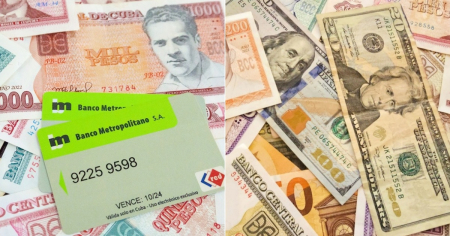A video published on TikTok by the profile @sigue.a.cuba showcases a Cuban visiting the newly opened store "Casalinda" at the iconic corner of San Rafael and Galiano, in the heart of Centro Habana. What he found there, according to his own words, exceeded his expectations.
"Sincerely, I believe there is more variety here than at the Supermercado de 3ra y 70," the user stated while walking through the aisles of the establishment, surprised by the presence of Italian products, including the popular hazelnut cream Nutella.
The store was established in the historic building that once housed the Ten Cents, a symbol of Havana's commerce in the 1950s. The regime reopened it in early April as "Casalinda". It only accepts payments in U.S. dollars or through "Classic" bank cards funded from abroad.
“The MLC doesn't work here”, the young Cuban specified in his video.
In addition to food and household products, "Casalinda" offers clothing, footwear, and a wide range of appliances imported from Europe and Asia. With more than 10,000 items available, the space has been featured on social media as “the new favorite shopping center” in Havana.
Access is restricted to a minority of Cubans who receive remittances, earn foreign currency, or have connections to the informal dollar market. Those who survive on devalued peso salaries can only visit "Casalinda" as if it were a "luxury museum" where they cannot take anything to eat.
This project is led by Bartolomeo "Beto" Savina Tito, an Italian businessman with over three decades of presence in Cuba, known for his ties to GAESA, the military conglomerate that controls a significant part of the national economy.
Through its company Italsav and in partnership with Tiendas Caribe, Savina is launching a new retail supermarket network in dollars, starting with this store in Centro Habana.
In 2019, the establishment faced criticism for its hygienic conditions, when reports of rodents and cockroaches emerged. Today, transformed into a currency exchange store, the former Ten Cents represents not only a shift in commercial offerings but also a recontextualization of the space as a symbol of inequality and economic exclusion.
Before, many Cubans could shop at Ten Cents with their modest salaries, but now a showcase rises there that only those with dollars in Cuba can access.
Frequently Asked Questions about the "Casalinda" Store and the Dollar Economy in Cuba
What is the "Casalinda" store and where is it located?
The "Casalinda" store is a new establishment in Havana that only accepts payments in US dollars or via Classic bank cards funded from abroad. It is located in the historic building that housed the Ten Cents at the corner of San Rafael and Galiano, Centro Habana.
What products can be found at "Casalinda"?
"Casalinda" offers a wide variety of products, including food, clothing, footwear, and imported appliances. Italian products stand out, such as Nutella hazelnut cream, along with a range of more than 10,000 items.
Who can shop at the "Casalinda" store?
Access to "Casalinda" is restricted to individuals who receive remittances, cash in foreign currency, or have access to the informal dollar market. This excludes those who depend on salaries in Cuban pesos, due to the economic exclusion represented by the exclusive use of the dollar.
What is the impact of the store "Casalinda" on the Cuban economy?
The opening of "Casalinda" reflects and reinforces economic inequality in Cuba. The dollarization of commerce deepens the divide between those who have access to foreign currency and the majority of the population that relies on the national currency. This has generated criticism and increased social discontent.
Filed under:
